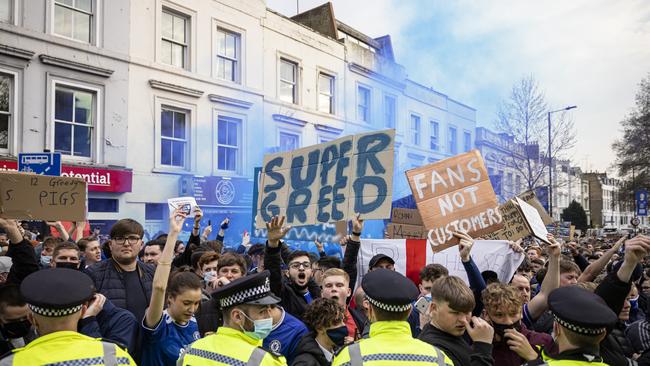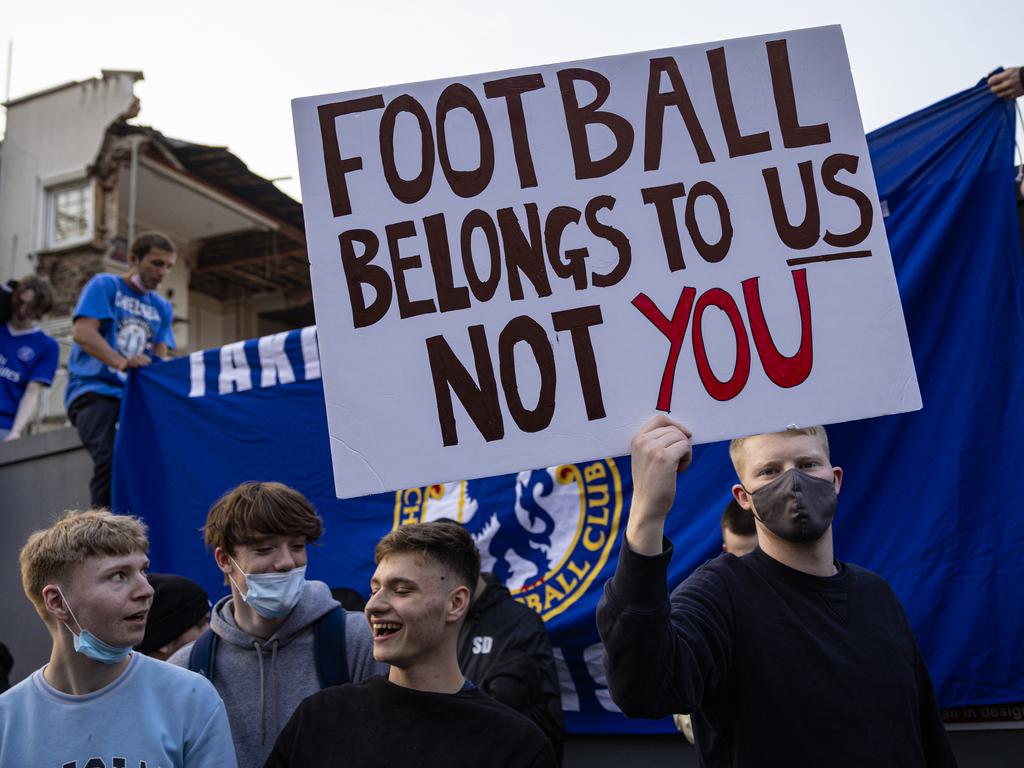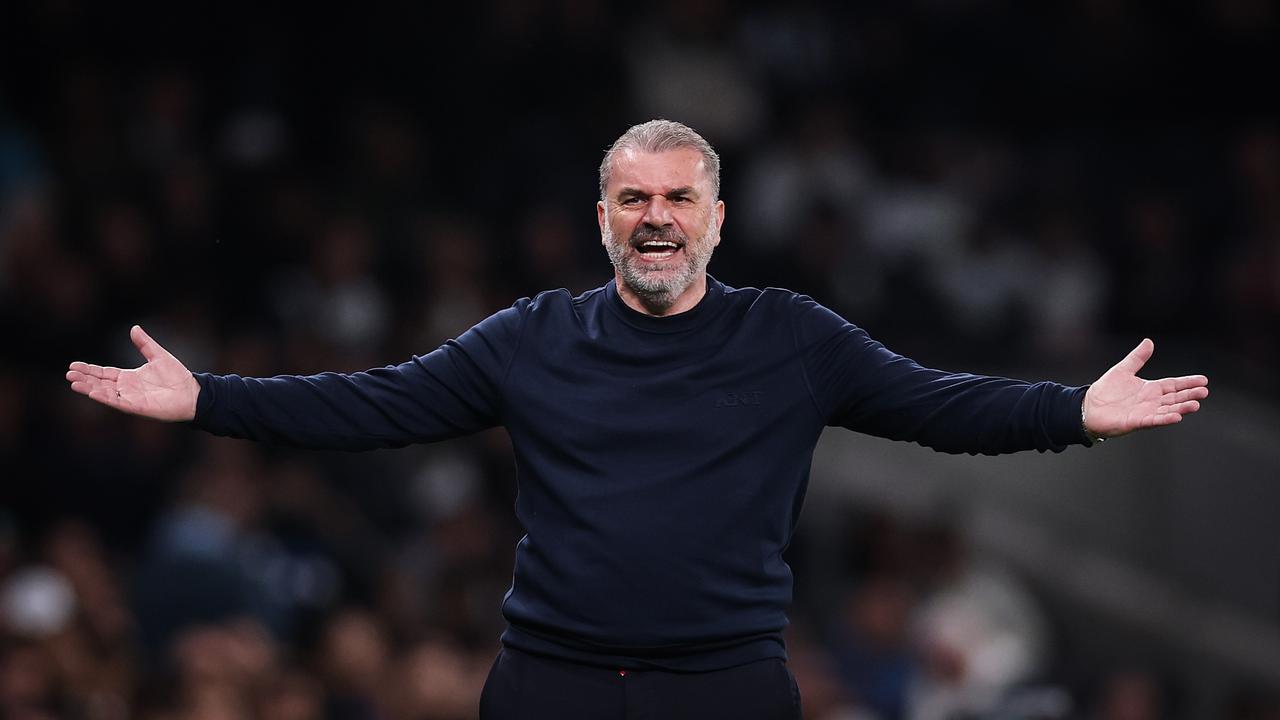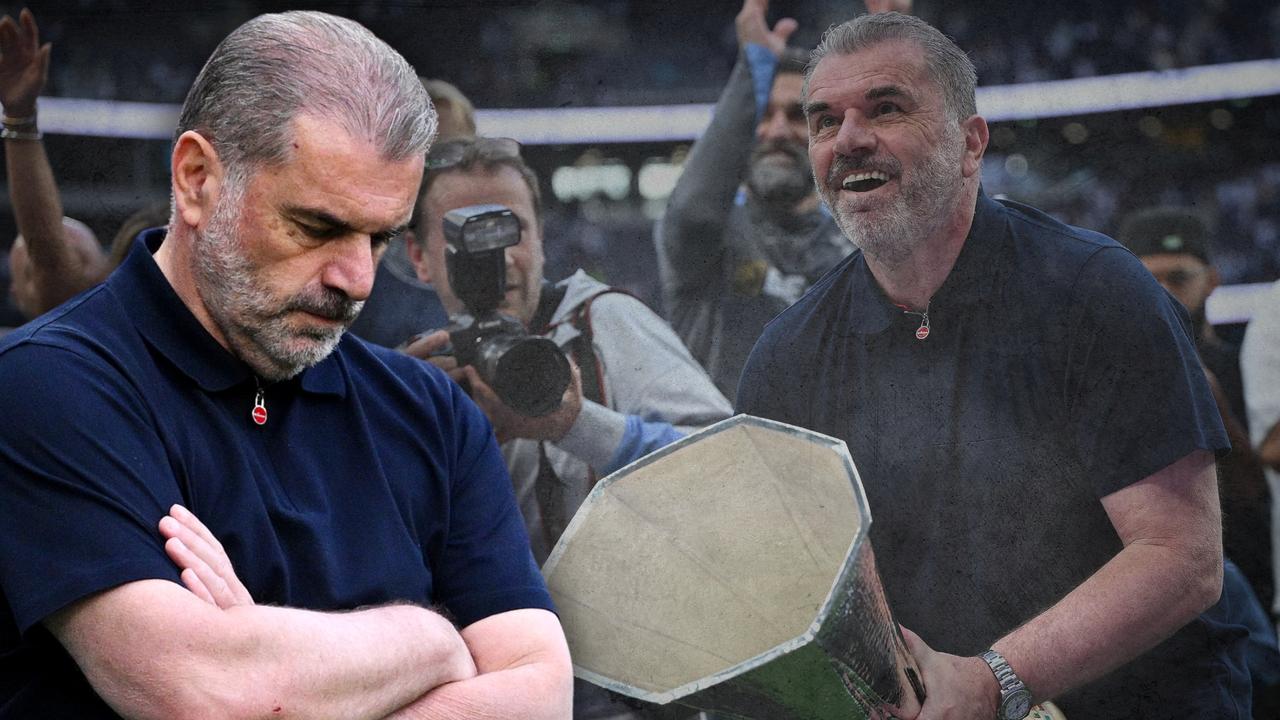Why league was a non-starter ... and what next for Europe’s elite
Outrage from supporters and opposition even from the Super League clubs’ managers and players proved too much.

Why has the Super League come crashing down?
The incredible reaction from supporters, the almost instanteous response of the British government, the opposition even from the Super League clubs’ managers and players proved too much.
Why were Chelsea and city the first to pull out?
They had always been reluctant partners in the first place — this was very much driven by the American owners of Manchester United and Liverpool. Abu Dhabi-owned City and Chelsea, owned by the Russian billionaire Roman Abramovich, are perhaps not so much at the mercy of market forces such as missing out on the Champions League or the effects of the pandemic. One club insider admitted they had been shocked by the reaction of their own fans and alarmed at the government’s strong action, saying: “It’s never good when the prime minister decides to become involved in football.”
What happens next within European football?
Uefa will proceed with its new 36-team Champions League from 2024. The Super League clubs are unlikely to face punitive action if they withdraw — the Uefa president Aleksander Ceferin held out an olive branch, directly addressing the owners of the English clubs, and saying: “What matters is that there is still time to change your mind. English fans deserve to have you correct your mistake.”
Is this an idea by rich Americans who underestimated the opposition?
Not completely — it was initially Real Madrid’s idea but it was certainly embraced ecstatically by the Glazers who own Manchester United. What is for sure is everyone underestimated the scale of the backlash.
How significant was the position of PSG and two German clubs?
A fairly strong factor. PSG’s president Nasser Al Khelaifi threw his lot in with Uefa — he is also the head of beIN Sport which has significant TV deals with the organisation — and that was a big blow to the Super League. The top German sides were even more resolute and a Super League without Bayern Munich was unthinkable.
Was the Super League all about clubs’ revenues being hit by Covid?
Partly — Real Madrid, Barcelona, Juventus and AC Milan have been devastated financially and are terrified of falling behind the English Premier League, which has a much bigger cash buffer. Tottenham Hotspur have also been hit hard and have a new stadium to fund. The incentive for the American owners of English Premier League clubs is to have a guaranteed place in Europe’s elite competition every season and end the risk of a financial shortfall by not qualifying for the Champions League, as well as the chance to sell some digital rights themselves. Chelsea and Manchester City were more reluctant but in the end they joined as they were scared about being left out.
The Times



